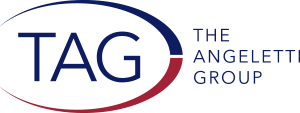Top 5 Strategic Planning Tips – Lessons Learned Over 20 Years of Planning
Strategic planning is a crucial exercise that every institution should go through from time to time, typically every five to seven years. A strategic plan establishes the framework necessary for your institution set goals and develop a plan that will help you move your mission and vision forward.
Benefits of Strategic Planning
Every college, university, and independent school should create a strategic plan. It may be tempting to forego having a strategic plan entirely, but research shows there are clear benefits of developing a plan.
- Research from the National Center for Education Statistics (NCES) shows that schools with a clearly defined strategic plan are 50% more likely to see improvements in student achievement outcomes compared to those without one.
- A survey by the American Council on Education (ACE) found that 86% of institutions that implemented a strategic plan reported increased donor contributions and fundraising success. This highlights the role of strategic planning in attracting financial support and resources to support the institution’s mission and vision.
Going through the process will also help you give precedence to projects and initiatives based on the priorities of your key stakeholders.
Additionally, if all stakeholders are included, it will build great enthusiasm for the future. Morale on campus will rise and public relations benefits will increase.
5 Things to Know About Strategic Planning for Schools
Strategic planning can be an intimidating concept, though it doesn’t have to be. TAG sat down with David Beecher, a former Headmaster, Director of Development, and Director of Admissions for independent schools and a college athletic administrator, and learned what he considers the top 5 critical components through his 20+ years’ experience developing strategic plans.
- Process is Paramount
Different processes can yield very different results when it comes to strategic planning. “There is an organization and roadmap to a quality strategic planning process,” says Beecher. Going into the process with a well-defined timeline, specific agendas and outlines for planning sessions, as well as a communication plan is essential to set you up for success.
- Communication is Key
Beyond thinking about how and when you will communicate during the strategic planning process, you must also think about WHO you need to reach. According to Beecher, “Having all constituencies represented and providing regular updates to your board and key stakeholders is so important.” Consider how you will communicate with each group (i.e. students, parents, administration etc.) and how you will allow for opportunities for them to collaborate.
- Data is Important, but so are People’s Opinions
A legitimate strategic plan will be informed by data. This can range from points around enrollment to capital spending. Don’t discount the value of the insights of the people closest to your institution, though. “Data will guide you, but do not lose sight that the people involved bring experience, wisdom, and valuable relationships to the process,” said Beecher. Make sure you account for, and give appropriate weight to, the opinions of central stakeholders.
- Stay Out of the Weeds!
This is often the single most difficult thing to manage during the strategic planning process. Beecher advises, “A strategic plan is, at its very core, meant to be a high-level strategic roadmap. It is looking from a 30,000 foot view. It is not meant to identify every pothole or how to fill them.” Setting expectations during the onset of the process as well as knowing how to appropriately redirect when participants want to prioritize issues that are ‘in the weeds’ can help stay focused on big picture challenges that need to be addressed.
Hiring a consulting firm like The Angeletti Group can be especially important for these situations. Having a neutral third party facilitate the planning can help to resolve any disagreements between decision-makers and ensure that everyone is heard during the process.
- Create Buy-In by Making it Usable
After investing so much time and resources into the process, you need to ensure that the final document is practical and usable. “The final plan will serve as a living, evolving document to guide the community for years to come,” Beecher says. “Thus, the quality and effectiveness of the plan itself is monumentally important.” Being able to present your institution’s goals and objectives, as well as how to meet them over the next several years, in an organized, easy-to-follow format will help drive engagement and increase the odds that you will be successful.
Creating a strategic plan for your independent school or institution of higher learning can help you drive achievement, increase funding, and develop the strategy needed to accomplish your goals.
If your institution is about to set out on creating a new strategic plan, or has never implemented one before, The Angeletti Group can assist you in your strategic planning process. Reach out to info@theangelettigroup.com to discuss.


